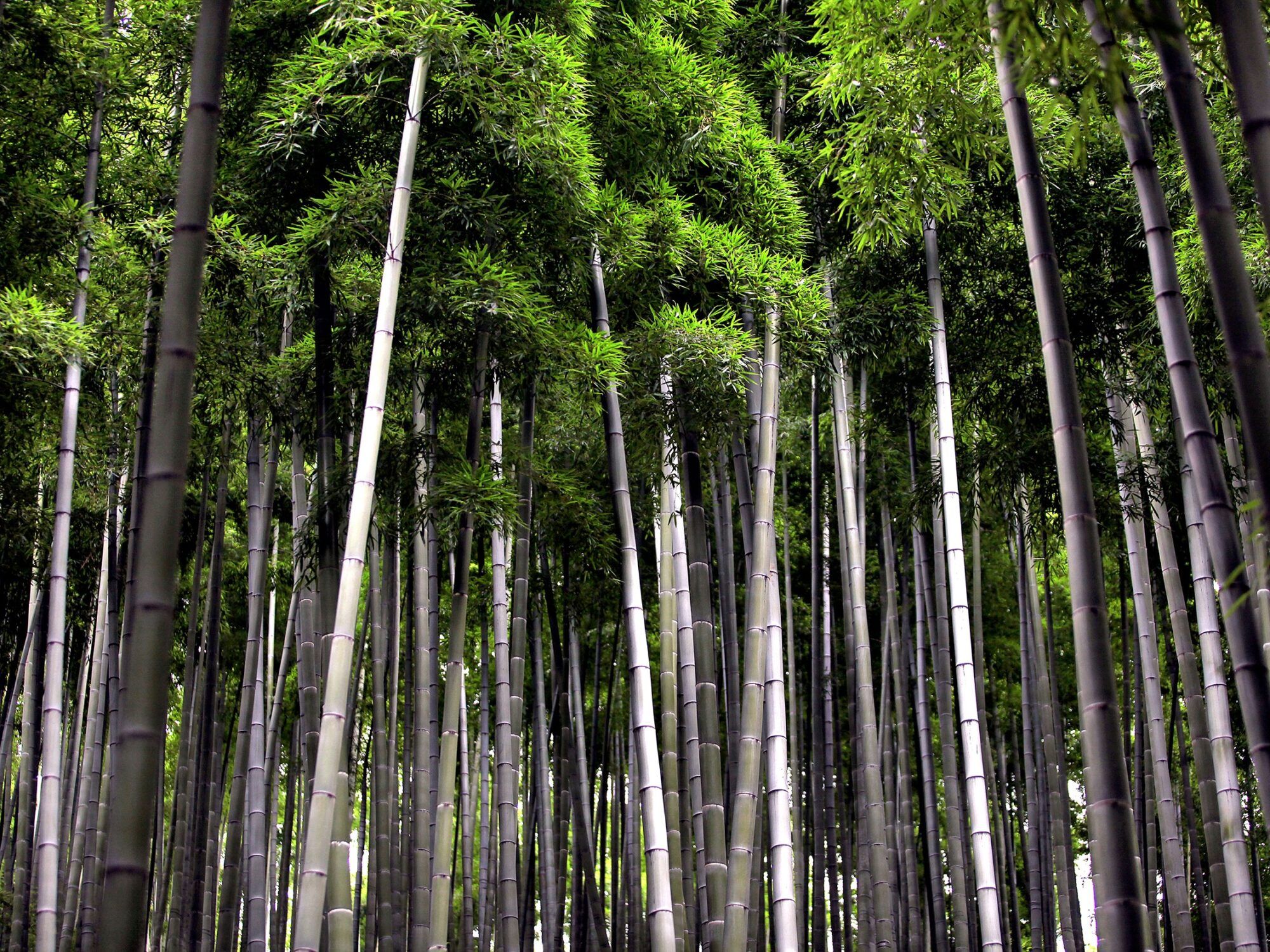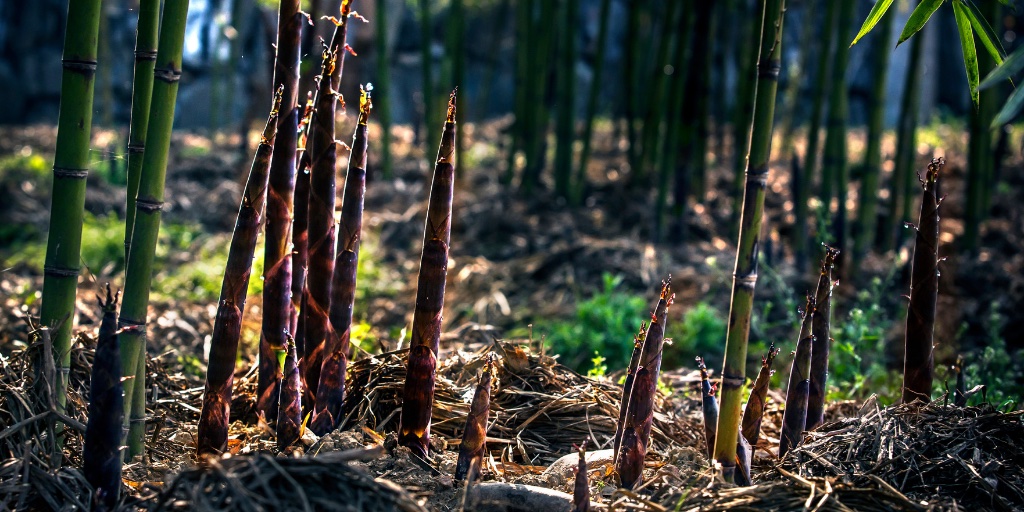Determining the overall environmental impact of bamboo decking and boards means looking at every stage in the process. This considers all the CO2 emissions, the factory working conditions, and the energy consumed along the way.
The lifecycle of bamboo decking boards can be broken down into four distinct phases: growth, production, application, and end-of-life.
1. Growth
Bamboo is one of the fastest growing plants in the world, at a rate of up to a metre per day! This caps out at around 20 metres in height, which can take between 4 and 5 years due to the time it takes for the bamboo to mature.
Old stems that have matured are ripe for harvest, providing large quantities of sustainable material for use in products like bamboo decking boards. The underground root network remains intact, allowing the new stems to flourish and ensuring the plant lives on.
During this phase, the bamboo absorbs a large amount of carbon dioxide via photosynthesis. This is stored within the product for the rest of its lifecycle, reducing the amount of CO2 in the atmosphere.
2. Production
Once it’s been grown and harvested, the bamboo needs to be converted into its end product.
Most bamboo products are made from the stems, which are split into strips and glued together with adhesive. Only a small amount of adhesive is used, and efforts are being made to discover eco-friendly bio-glue alternatives.
Different production steps are also carried out such as heat treatment at temperatures around 200°C and compression under high pressure. These secure the product against damage, weathering, and fire – providing an alternative to standard chemical treatments for these results.
Working conditions should also be taken into consideration. MOSO® Bamboo Decking is made in facilities with ISO 9001 and ISO 14001 certifications, assuring their quality and environmental impact.
While production in isolation isn’t necessarily eco-friendly, MOSO® Bamboo Decking boards result in a net-negative carbon output over their entire lifespan.
3. Application
MOSO® Bamboo has an incredibly long lifespan, usually between 30 and 50 years. We offer a warranty of 25 years, meaning its assured to last for at least that long.
All the carbon dioxide that’s absorbed during photosynthesis is stored in the material, removing it from the atmosphere for the entire lifespan of the bamboo product.
A study from the Delft University of Technology on the Lifecycle Assessment and Carbon Sequestration of bamboo decking revealed it to be at least carbon-neutral over its lifespan, making it a great choice to use on your building.
Secure eco-friendly bamboo decking with non-slip grip and a beautiful finish – check out our products or contact us today!
4. End-of-life
When your bamboo decking boards reach the end of their life, this doesn’t mean they have to go to waste. They can continue their sustainability through eco-conscious practices, such as:
- Reusing them in similar products
- Recycling them into fibres to synthesis other materials and products
- Using them in the production of bio-energy
This means that, even once your bamboo decking needs replacing, you’ll be contributing to a circular economy of positive environmental impacts.

